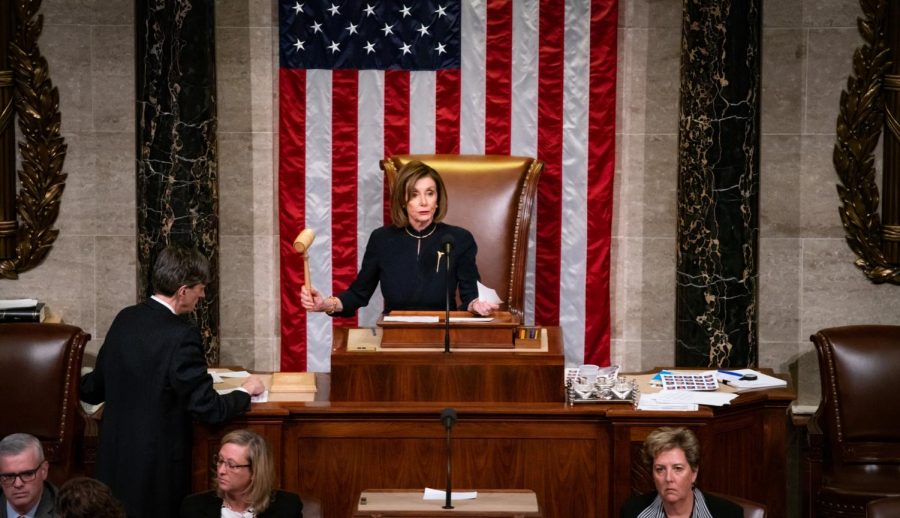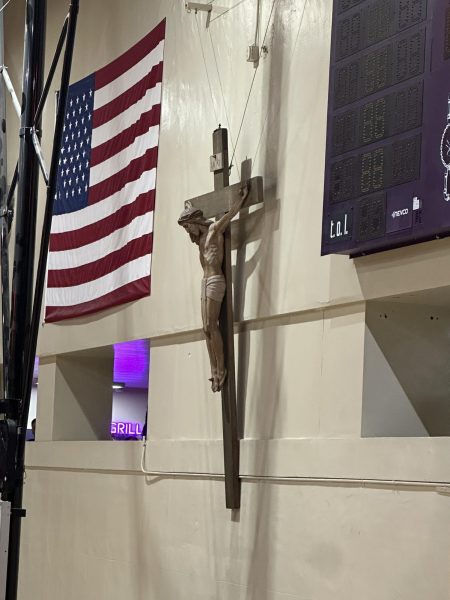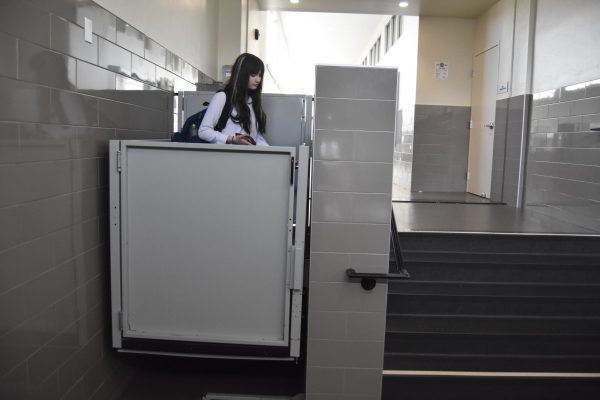Partisan impeachment on Capitol Hill ends in acquittal
Speaker of the House Nancy Pelosi bangs the gavel, announcing impeachment proceedings had begun.
March 5, 2020
In the space of time between Dec. 18, 2019 and Feb. 5, 2020, President Donald J. Trump was both impeached by the House of Representatives on two charges of abuse of power and acquitted by the Senate on those charges, an occurrence that has happened to the president only twice before.
The impeachment followed an official House inquiry, in which Democrats accused President Trump of soliciting Ukrainian President Volodymyr Zelensky for an investigation into Democratic presidential candidate Joe Biden in exchange for military aid.
Concerns over the conversation were first raised when a then unnamed whistleblower claimed he was on the call. The transcript of the call has since been released, and the whistleblower has been revealed to be CIA analyst Eric Ciaramella.
Trump presumably wanted Biden investigated for his son Hunter’s involvement in Burisma Holdings, a Ukrainian natural gas producer. The younger Biden was a member of the company’s board from 2014 to 2019, a position that garnered him a whopping $50,000 a month despite his limited experience in the energy industry and in Ukraine.
Suspicion first arose when then Vice President Joe Biden, who was in charge of Ukrainian relations at the time, pressured for the firing of a Ukrainian prosecutor who was investigating Burisma at the time.
“There are other ways and other means by which the president can investigate misdealings or things outside the law. If he truly believed there were dealings that were outside of the parameters of legality, the president could have called the FBI or even perhaps the Intelligence Services if he thought something was nefarious.What he truly did wrong was go outside his scope of powers as president to investigate American citizens,” said Social Science teacher David Elu.
The House inquiry lasted from September of 2019 to November of 2019, which included multiple hearings held by the House Intelligence Committee in October. In those hearings, the public was able to hear from important witnesses including former Ukraine ambassador Marie Yovanovitch, ambassador to the European Union Gordon Sondland, and top Ukraine aid to the National Security Council Lt. Col. Alexander Vindman.
The committee then voted 13-9 to send through a final report on the information they gathered. On Dec. 4, the House Judiciary Committee commenced official impeachment hearings.
On Dec. 13, the House Judiciary Committee voted 23-17 along party lines to recommend two articles of impeachment, one for abuse of power, and the other for obstruction of Congress. On Dec. 18, the House voted to send articles of impeachment to the Republican controlled senate.
Speaker of the House Nancy Pelosi initially withheld the articles from the Senate, delaying the trial for about a month in order to ensure that witnesses would be called.
Pelosi’s efforts were ultimately fruitless, as the Senate voted 51-49 to block any witnesses from appearing in the trial. Two Republican senators, Mitt Romney of Utah and Susan Collins of Maine, voted along with all Democrats against the measure.
The Senate then voted to acquit the president on both charges, falling well short of the two-thirds vote needed to remove a sitting president. Romney, the Republican presidential nominee in 2012, voted to convict the president for abuse of power, but not obstruction of congress, becoming the only senator to vote across party lines.













